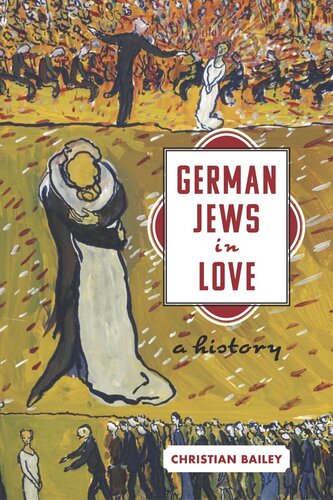

Most ebook files are in PDF format, so you can easily read them using various software such as Foxit Reader or directly on the Google Chrome browser.
Some ebook files are released by publishers in other formats such as .awz, .mobi, .epub, .fb2, etc. You may need to install specific software to read these formats on mobile/PC, such as Calibre.
Please read the tutorial at this link: https://ebookbell.com/faq
We offer FREE conversion to the popular formats you request; however, this may take some time. Therefore, right after payment, please email us, and we will try to provide the service as quickly as possible.
For some exceptional file formats or broken links (if any), please refrain from opening any disputes. Instead, email us first, and we will try to assist within a maximum of 6 hours.
EbookBell Team

4.3
78 reviewsThis book explores the dynamic role of love in German-Jewish lives, from the birth of the German Empire in the 1870s, to the 1970s, a generation after the Shoah. During a remarkably turbulent hundred-year period when German Jews experienced five political regimes, rapid urbanization, transformations in gender relations, and war and genocide, the romantic ideals of falling in love and marrying for love helped German Jews to develop a new sense of self. Appeals to romantic love were also significant in justifying relationships between Jews and non-Jews, even when those unions created conflict within and between communities.
By incorporating novel approaches from the history of emotions and life-cycle history, Christian Bailey moves beyond existing research into the sexual and racial politics of modern Germany and approaches a new frontier in the study of subjectivity and the self. German Jews in Love draws on a rich array of sources, from newspapers and love letters to state and other official records. Calling on this evidence, Bailey shows the ways German Jews' romantic relationships reveal an aspect of acculturation that has been overlooked: how deeply cultural scripts worked their way into emotions; those most intimate and seemingly pre-political aspects of German-Jewish subjectivity.